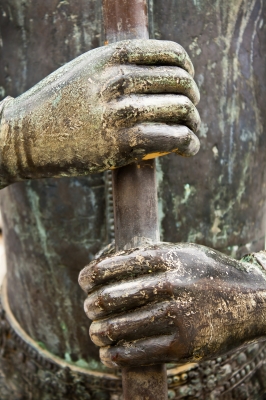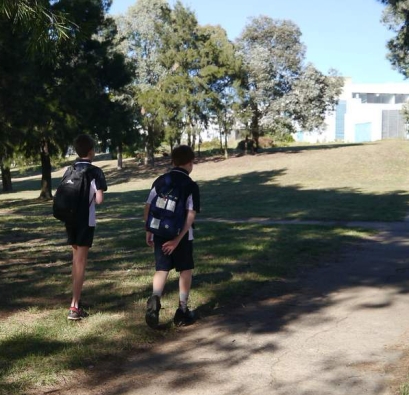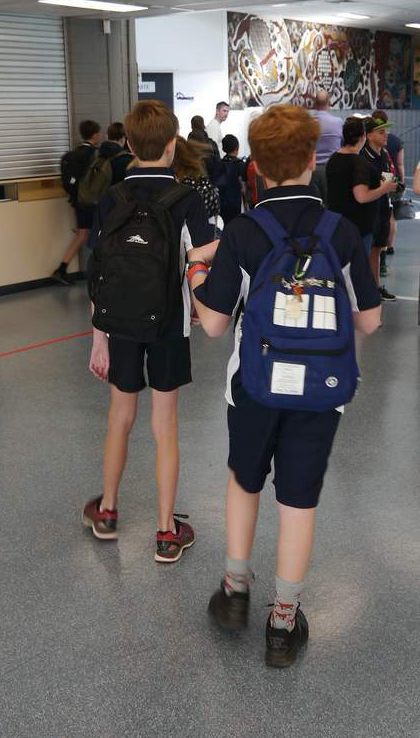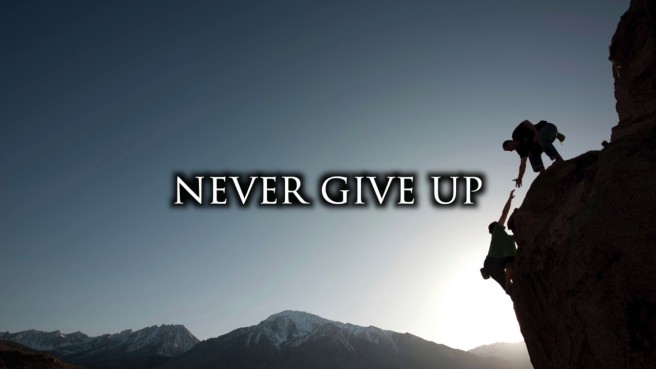As I write this, Geordie is at Year 7 camp.
Not so momentous, maybe, but for my boy it’s huge. He’s never been on a school camp — not because he hasn’t had the opportunity, but because he’s never wanted to go before.
I fully suspect he didn’t really want to go to this one either — at least not the ‘I’m so excited I can hardly contain myself’ wanting I often see in other children in the lead up to camp. However, he agreed to go because this is part of who he is becoming as he matures — the person who participates because he is part of the group.
I’d been working out what to do to encourage him to go ever since I found out about the camp last year. (Actually, it’s been in the back of my mind since he was in Year 5 and didn’t attend camp — all schools take their new Year 7s on camp.)
There are multiple reasons why he doesn’t enjoy this type of activity, but they all boil down to the unknown: unknown people, unknown location and unknown activities.
Geordie’s school use Birrigai for their Year 7 camp and, because of this, I figured the last two unknowns were things I could do something about to help him prepare.
Unknown location:
Facts: Birrigai is a 45-minute bus trip from the school. They also hire out their facilities to groups during school holidays and weekends.
Solution: Take Geordie to Birrigai for an overnight stay.
Unknown activities:
Facts: I have been there more times than I care to count — as a teacher running a camp excursion, for teaching professional development days and as a student myself. In this time, I have done every activity they have on offer. I know the grounds like the back of my hand.
Solution: While I can’t have Geordie experience all the activities, I can show him where they are situated and describe to him what will happen.
I contacted Birrigai management and explained the situation. Hey Presto — we were in.
** As an aside, I should explain at this point: I personally do not like Birrigai. This is not based on the place itself — it’s a lovely setting, well maintained, flushing toilets — but rather on my own experiences as a student and a teacher. This forms a huge part of The Things We Do as parents to help our kids.
Once I’d booked, I sat down with Geordie and told him where we were going and why. This has always been a vital part of my communication with Geordie — openness and upfront explanations of our actions:
We are going to Birrigai so you can see what it’s like and so you know what to expect when you go on Year 7 Camp.
Note the use of when in that sentence, not if.
I’ve learned in the past, if I give Geordie an out, he’ll take it. Who wouldn’t?
But I also tried to make it clear that, while I wanted him to go, if he got there and it was too much, I would pick him up in the evening and take him back in the morning for the daytime activities.
Compromise and negotiation are key.
Anyway, as it turned out we had the whole camp to ourselves. This was brilliant as we were free to explore every inch of the place as and when we wanted.
We were lucky that Geordie’s mate, Owen, was available to join us.
Watching them explore — I think they had a ball. We talked about the different areas, the history of the place (it all but burned down in the 2003 bushfires, so I told them what it used to be like before that and how much better it is now) and they got to see the areas usually out-of-bounds for students.
Afterwards, once we’d returned home, Geordie was fairly non-communicative in his assessment of the place.
It was alright.
That was pretty much all I got.
But:
I didn’t get: ‘I hate it,’ or ‘I’m not going back.’
And:
He’s there right now! (And it’s been 24-hours with no phone call.)
As much as taking Geordie and Owen to Birrigai overnight put me out of my comfort zone I am ever so glad I did.
Taking away some of the unknown may not have been a huge contributor but I know it played a part.
Familiarity is important.
Preparation is important.
** And a second aside: I saw a new side to Birrigai myself — it’s a really beautiful, peaceful place when you’re not there with 100+ too-excited-to-sleep children. My full admiration and thanks go out to the seven staff members who are there right now.








